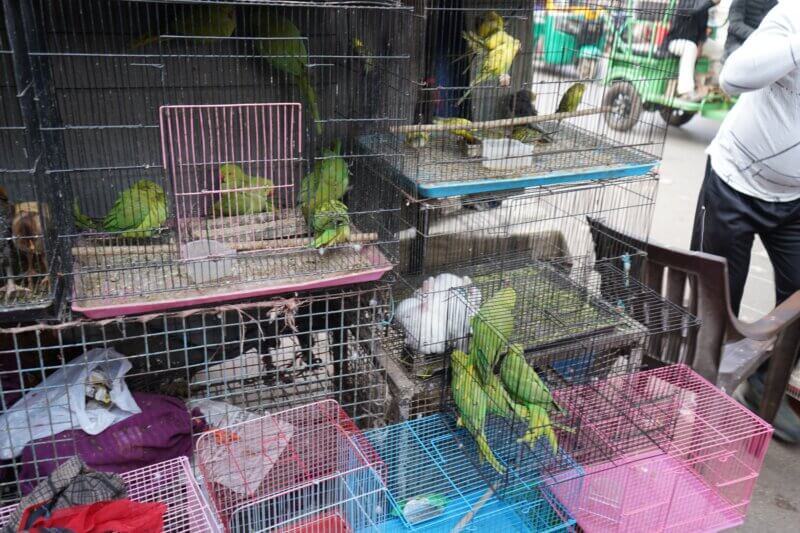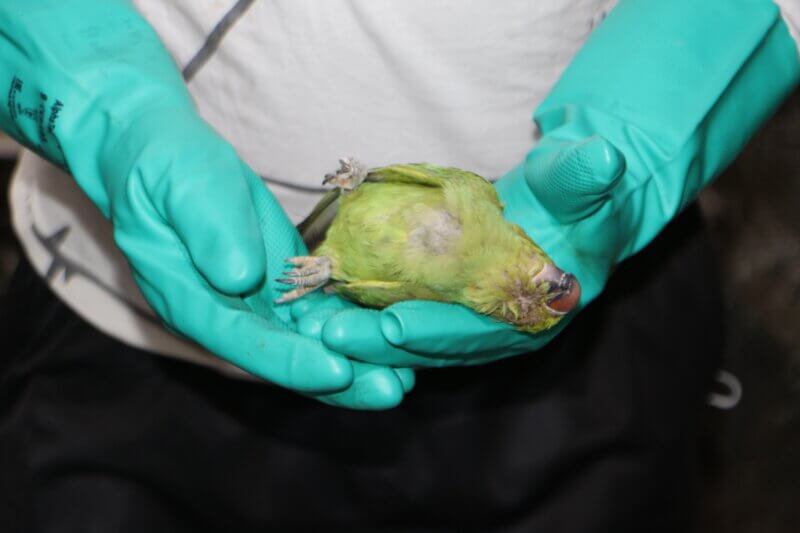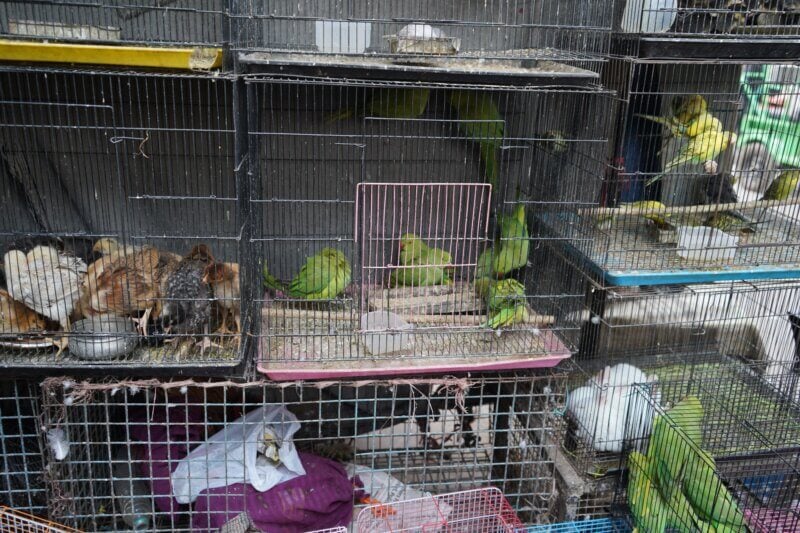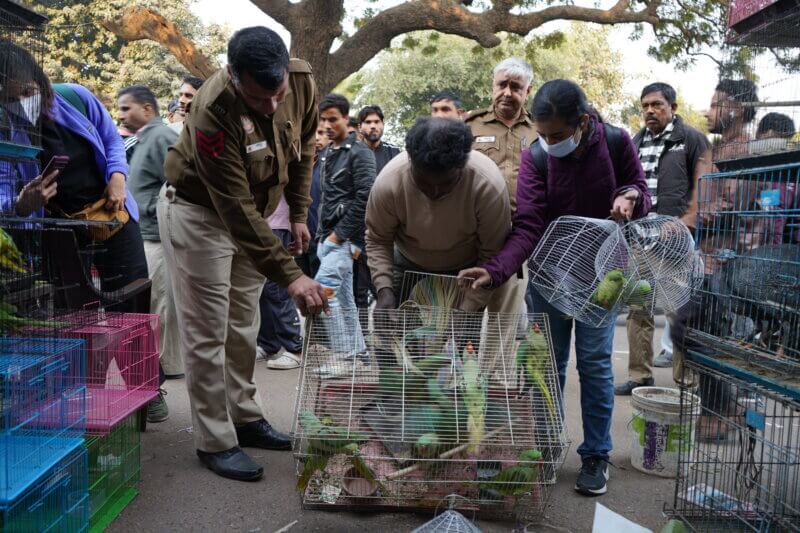Nearly 150 Parakeets and Other Birds Recovered in Delhi Raid Following PETA India Complaint
On 9 December, acting on a complaint by PETA India, the Jama Masjid Police Station recovered nearly 150 parakeets and pigeons from shops at Kabutar Market near Jama Masjid. Two of the parakeets were found dead. 56 pigeons and 90 parakeets were seized, of which 49 were Alexandrine, 39 were rose-ringed, and 2 were plum-headed. The parakeets were confined to dingy, filthy cages or stuffed into cloth bags, and the pigeons were kept in similar deplorable conditions. PETA India had sent a complaint to the Deputy Commissioner of Police, Central District and Jama Masjid Police Station requesting that the birds be recovered and the shop owners booked. The Jama Masjid Police Station has registered a first information report (FIR) against the alleged perpetrators under relevant sections of the Wild Life (Protection) Act (WPA), 1972, Bharatiya Nyaya Sanhita, 2023 and the Prevention of Cruelty to Animals Act, 1960.
In July, the central division of the Delhi Forest Department recovered 1,000 birds with the support of the Jama Masjid Police Station, acting on a complaint by PETA India. These birds included Alexandrine, ring-necked and plum-headed parakeets and hundreds of finches. In March 2022, Delhi police recovered thousands of adult and baby birds from illegal traders at Kabutar Market in response to a complaint by PETA India. These birds included ring-necked and plum-headed parakeets, hundreds of munias, two common hill mynas, and a pigeon.
Following their rescue, the surviving birds were sent for a health check, treatment, and temporary rehabilitation. Once their recovery is complete, they will be released into nature.
Alexandrine, rose-ringed and plum-headed parakeets are protected under Schedule II of the WPA, 1972. Buying, selling, or possessing these species is an offence punishable by a fine of up to Rs 1 lakh, a jail term of up to three years, or both. Endangered wildlife is protected internationally under the Convention on International Trade in Endangered Species of Wild Fauna and Flora (CITES). Non-native endangered species protected under CITES are also protected under Schedule IV of the WPA, 1972.
In the illegal bird trade, countless birds are taken from their families and denied everything that’s natural and important to them so that they can be sold as “pets” or used as bogus fortune-tellers. Fledglings are often snatched from their nests, and other birds panic as they’re caught in traps or nets that can seriously injure or kill them as they struggle to break free. Captured birds are packed into small boxes, and an estimated 60% of them die in transit from broken wings and legs, thirst, or sheer panic. Those who survive face a bleak life in captivity, suffering from malnutrition, loneliness, depression, and stress.
The WPA, 1972, bans the capture, caging, and trading of indigenous birds and that non-compliance can result in imprisonment, a fine, or both. In addition, caging birds violates The Prevention of Cruelty to Animals Act of 1960, which stipulates that it’s illegal to keep or confine any animal in a cage or other receptacle that fails to provide them with a reasonable opportunity for movement – and for an aerial bird, that includes flight.
You can help birds by signing this petition against their being caged.












